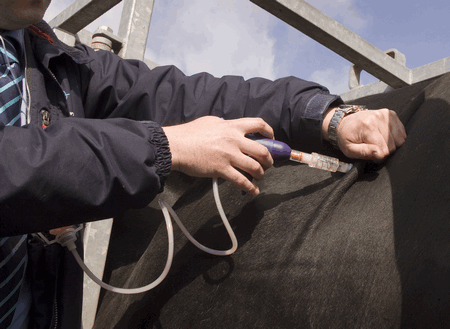Bluetongue cattle to be retested

The eight imported dairy cattle which have tested positive for bluetongue near Tiverton, Devon, are being re-tested for confirmation of the virus.
The farmer, who chose not to be named, said he thought DEFRA‘s PCR test may have picked up on antibodies generated after the cattle had received their first bluetongue vaccination in Germany.
The cattle, part of a group of 20 bulling Holstein / Friesian heifers, were all imported from the same bluetongue-restricted zone in Germany. The virus was detected by post-import testing, conducted by DEFRA.
“The farmer in question has done everything by the book – he has done nothing wrong,” said Andrew Butler from the south-west NFU. “Most of Europe is now in a bluetongue protection zone so in many ways it is treated as one disease unit.”
However, it was a timely reminder for farmers to ensure their stock were vaccinated to protect against the disease. “As long as you’ve vaccinated your stock you have nothing to fear.”
But many people were now questioning the wisdom of importing animals which could be infected with the bluetongue virus.
“If importers must bring in stock they should not accept word of mouth affirmation from suppliers that the animals carry no bluetongue risk and protect their reputations, and their own cattle, by insisting on a vaccination certificate that has been signed by a vet,” said Frank Momber, vice chairman of the National Beef Association.
Mr Butler agreed that anyone importing stock should consider the risks. “But because of the state of the UK dairy industry, there aren’t many dairy heifers around on the market, so people are being forced to go further afield.”
The farm was now under movement restriction, and farmers within a 3km area had been notified by Animal Health. The re-test results should be available within a week.
